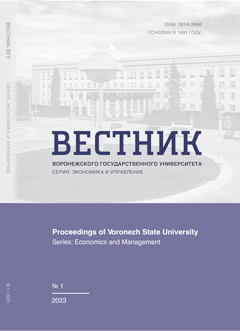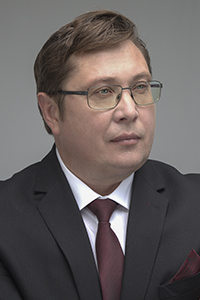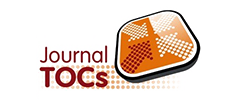Экспертная оценка грантов: проблемы и пути развития
Аннотация
Предмет. Организационные и методические аспекты проведения экспертизы заявок по грантам, осуществляемых российскими научными фондами.
Цели. Определить место искусственного интеллекта в системе отбора заявок по грантам. Изучить действующие методики анализа проектов экспертами и разработать новаторский алгоритм верификации заявок.
Методология. В процессе исследования использовались данные Министерства финансов РФ, Счетной Палаты РФ, сведения российских научных фондов (РФФИ и РНФ), другие информационные сведения, затрагивающие регламентацию грантового финансирования. Применялись методы анализа, наблюдения, обобщения, сравнения, группировки и др.
Результаты. Проведен критический анализ многокомпонентной структуры прохождения заявки. Идентифицированы методы экспертного сопровождения проектов. Разработана концептуальная модель гибридного метода оценки заявок на грант. Определены требования полноты и универсальности, предъявляемые при диагностике проекта.
Выводы. Подтверждена гипотеза о необходимости применения новаторского подхода в экспертной оценке, обеспечивающей эффективность контроля заявки на различных этапах её жизненного цикла.
Литература
Babina, K. I. (2014) Legal problems of ensuring information transpar-ency in obtaining grants by scientific institutions. Scientific and Practical Journal. Information security of regions. 1 (14), 89-91. (In Russian).
Belyavsky, O. V. (2018) Scientific and educational organizations as participants in grant legal relations. Education and Law. 9, 237-244. (In Russian).
Bibarov-Gosudarev, A. P. (2019) The concept and essence of a grant in civil law. 25 years of the Civil Code of the Russian Federation: traditions and innovations of private law development: traditions and innovations of private law development: materials of the international. scientific-practical. conf. Tambov, Print Service, pp. 257-263. (In Russian)
Bubnova, E.Yu. (2021) Features of obtaining grants by higher educa-tional institutions. Actual problems of finance, money circulation and credit: mate-rials of the national conference dedicated to the 25th anniversary of the Depart-ment of Finance and Credit of the Voronezh State Agrarian University named after Emperor Peter I. September 2021, Voronezh, pp. 96-100. (In Russian)
Bubnova, E.Yu. (2021) The system of scientific grants in the Russian Federation. Management of innovative development of agro-food systems at the national and regional levels: materials of the III International scientific and practical conference. October 27-28, Voronezh, pp. 218-221. (In Russian)
Gataullin, T. M., Nikolotova, S. V. & Goncharov, L. L. (2016) Model of work of the grant fund. Bulletin of the University. 2, 206-209 (In Russian)
Erokhina, E. (2019) Subsidy or grant. Lawyer of the university. 2, 39-40 (In Russian)
Ivantsova, S. N. (2019) Grants. Additional support. Budget account-ing. 1, 36-41(In Russian)
Kaminskaya, E. V. & Rudchenko, T. L. (2018) Grants: concept, legal support, features of implementation and classification of types. Bulletin of the Sa-ratov State Law Academy. 3 (122), 255-263 (In Russian)
Medvedev, Yu. (2021) How Russian science will be financed. Ros-siyskaya Gazeta. Federal release. 284 (8635) (In Russian)
Sirotkin, A. V. & Starikova, O. A. (2019) Sectoral identification of applications in an automated expert system for distributing grants. Modern science-intensive technologies. 7, 99-10 (In Russian)
Storozheva, A. N. (2020) On the issue of the procedure for filing, reg-istration and consideration of applications for participation in the competition of the Presidential Grants Fund. Science and education: experience, problems, devel-opment prospects: materials of the international scientific and practical confer-ence. April 21-23, Krasnoyarsk Part 2. Krasnoyarsk: Krasnoyarsk State Agrarian University, pp. 600-604 (In Russian)
Tatarinova, S. M. (2014) Japan: the system of state support for the de-velopment of science. Polis. Political studies. 1, 166-174 (In Russian) DOI: 10.17976/jpps/2014.01.12
Besselaar, P. (2018) Studying grant decision-making: a linguistic analysis of review reports. Scientometrics. 117, 313–329
Hug, S. E. & Aeschbach, M. (2020) Criteria for assessing grant appli-cations: a systematic review. Nature Palgrave Communications. 6, 37 DOI: 10.1057/s41599-020-0412-9
Matzler, P. P. (2021) Grant proposal abstracts in science and engineer-ing: A prototypical move-structure pattern and its variations. Journal of English for Academic Purposes. 49, 100938. DOI:10.1016/j.jeap.2020.100938
Patil, S. G. (2019) How to plan and write a budget for research grant pro-posal? Journal of Ayurveda and Integrative Medicine. 10(2), 139-142. DOI: 10.1016/j.jaim.2017.08.005
Yousoubova, L. & McAlpine, L. (2021) Why is the proposal alone not suffi-cient for grant success? Building research fundability through collaborative re-search networking. Innovations in Education and Teaching International. 02, 93 – 103. DOI:10.1080/14703297.2021.1997784
Copyright (c) 2022 Бубнова Е.Ю.

Это произведение доступно по лицензии Creative Commons «Attribution» («Атрибуция») 4.0 Всемирная.























